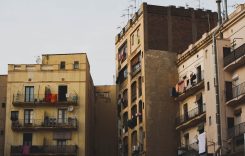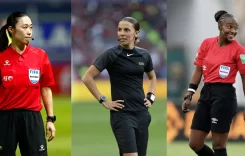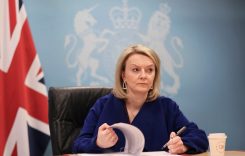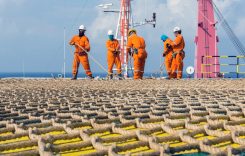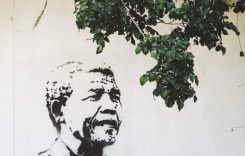Overcrowded neighborhoods, limited access to water, cramped housing, economic dependence… In Africa, many parameters make the application of containment measures difficult.
In Nairobi, Kenya, a 13-year-old boy was shot and killed, after police opened fire to enforce the night curfew. In the sensitive Alexandra district of Johannesburg, the army was deployed to enforce the containment order. As in many other overpopulated townships in South Africa, the recalcitrant inhabitants were molested and humiliated by certain members of the police. In the working-class district of Yopougon, in Abidjan, in Côte d’Ivoire, a reception center for Covid-19 patients was ransacked. In Kinshasa, the capital of the Congo (DRC), the confinement had to be postponed in the face of social pressure only four days after its establishment.
Confinement seems utopian in Africa. Across the continent, the measures taken to combat the spread of the coronavirus are difficult to respect and to enforce. Faced with this reality, the President of Benin, Patrice Talon, abandoned the idea of confinement, even partial. “If we take measures that starve everyone, they will very quickly end up being defied and flouted,” he said, not without acknowledging that the situation is “really serious” and “the risk great” .
With around 700 deaths on the continent – figures underestimated according to experts – and cases of contamination which are increasing rapidly, the epidemic could indeed wreak havoc if it continues freely. In the majority of African countries, health systems are indeed failing and risk being overwhelmed very quickly.
Insoluble dilemma
The dilemma is, for the time being, insoluble. In the absence of an alternative to reduce the spread of the virus, all countries of the planet, with rare exceptions, have adopted containment, a method recommended by the World Health Organization (WHO) as the main measure to combat the spread of contagion.
But if this strategy is possible in the countries of the North which can deploy, in addition to social support measures, compensation for loss of income, it is made impossible in Africa by the absence of generalized social coverage. People are largely confined to the informal sector to work and support themselves, and have to go out every day to earn money.
Also complicated to ask the most modest families to stay all day locked up in houses where promiscuity and unsanitary conditions prevail. Or to demand from them a “social distancing” when cohabitation is often the rule. As for the application of hygiene measures, it is not realistic when access to running water is limited, and soap a luxury. “70% of the African urban population lives in popular and precarious districts with high density” , recalls the Ivorian sociologist Francis Akindes, professor at the University of Bouaké.“Mobility allows him to decongest the family home at certain times of the day. People of modest means are in the conquest of inhabited space. With confinement, these inhabited spaces become scarce and the distance is narrowed. Confinement represents for them an increase in promiscuity, ”he adds.
Many voices, even in the ranks of the International Monetary Fund (IMF) , rise to warn against confinement whose human cost would be heavier than that of the disease itself. If a handful of African presidents have finally ordered their residents to stay at home, they don’t know how long they can last. WHO admits it. Its Africa director, Dr Matshidiso Moeti, believes that “once you have invited people to stay in their homes, well, the problem is not solved”. Dr Michel Yao, WHO emergency operations manager in Africa, underlines:
“WHO has not recommended containment as an automatic measure. This is part of the control measures, but they must be based on analysis and evidence. If, in a country, there are only sporadic cases, it would be excessive to establish a general confinement, taking into account the economic disadvantages that this can cause. “
He therefore recommends localized confinements according to the extent of the contamination. “Some countries confine only one city or one district,” he says.
Community monitoring
Above all, it calls for essential support measures, adapted to local contexts. From a health point of view first. In most disease surveillance networks in Africa, there is “community-based surveillance” developed during recent epidemics. These are decentralized structures, led by “community agents” , neighborhood leaders. “We reactivate these cells which can bring up information on high cases of respiratory diseases or other complications linked to the coronavirus, for example,” explains Dr Yao.
Another approach, which WHO calls “active research”, can be used. It consists in going through the neighborhoods, family by family, and in health centers, to detect cases that would have escaped surveillance, especially if the populations are confined. The WHO doctor specifies:
“We implemented this system when the Ebola epidemic escalated. We relied on NGOs and community relays to detect, isolate the patients and follow their contacts to reduce the chain of transmission. “
Finally, he believes that detection by tests will be essential, but recognizes that their availability is limited.
Fear of violence
Awareness of the measures taken by the authorities is essential, even more so on the African continent, so great is the distrust of the rulers, and alarming the dissemination of false information which thrives on this lack of confidence. Francis Akindes explains:
“Part of the population denies the reality of the virus. She believes that the disease happened with people who took the plane, so it is a “disease of the rich”. The Covid-19 is thus associated with the world of governors vis-à-vis whom they hold grudges. “
In Abidjan, brand new centers for fighting the pandemic were destroyed even before the completion of the worksites, with cries of “We don’t want! ” . “When I worked on Ebola, I observed the same behaviors. We do not want to see the presence of the disease and we believe that the disease must remain where it is, that is to say in Western countries, “said the sociologist. “In many African countries, there is a tendency to trivialize the coronavirus epidemic, the dead seem far away. Viral fear has not yet taken hold. “
The state is forced to step up and use force, which leads to numerous clashes. Francis Akindes warns: “We are still, in Côte d’Ivoire, in a vertical pattern, from top to bottom, from the rulers to the populations. They see this as a violation of their world. And I fear that over time this will become a source of protest violence. “
Conventional means of communication such as posters and leaflets instructing the order to stay at home have their limits. “It can speak to Rotary club members, but not to slum dwellers!” We must develop a communication that is not a simple replica of what is done in Western countries, where social and cultural realities have nothing to do with ours. ” Emphasizes Francis Akindes.
Opinion relay
To improve communication, community engagement is brought up to date, along the lines of the fight against Ebola. “People must understand why we are taking these measures, otherwise we will not be able to get their support,” said Dr. Yao. National authorities cannot do without local chiefs, often the only ones able to relay certain messages and gain the support of communities, especially in the interior. “I recommend local communication to explain to people, in their languages and registers, what the disease is, how it evolves, and how to protect the elderly, the most vulnerable. Then we can ask people to participate in the organization and risk management ”, judge Francis Akindes, who evokes the role played by religious leaders, but also town criers.
However, the experience of Ebola has also shown that the prescribing role of these relays tends to fade with young people. Increasingly, smugglers are therefore sought in different categories – students, doctors, public figures or popular stars – who deliver simple messages on the social networks massively used by Africans. Alice Desclaux, anthropologist and doctor, who participates in a program on the circulation of information on the coronavirus in Dakar, notes:
“In these times when, according to the formula,“ references are globalizing and people are individualizing ”, the sources and relays of knowledge transmission can be quite different, including for two people from the same social group. “
International aid support
The potentially disastrous economic consequences for populations deprived of income still have to be remedied. According to the humanitarian organization Action Against Hunger, preventing people from working on a continent where 200 million people are already undernourished amounts to putting them on the road to starvation.
Massive international aid is essential. The United Nations, African governments and NGOs have urgently called for international solidarity and debt cancellation. The UN estimates the financial needs for health at $ 500 billion. The European Union will guarantee more than 15 billion euros to help the most vulnerable countries, in Africa and in the rest of the world.
France, for its part, will devote nearly 1.2 billion euros by redirecting its funds for development aid, including 1 billion in the form of loans, which did not fail to arouse criticism of French NGOs requesting additional aid. Oxfam, for its part, recommends granting direct financial aid to the most affected people, priority support for small businesses, and that financial aid for the largest is conditional on measures in favor of vulnerable populations.
“There is an urgent need to act. Priority is given to preparation, the fight can still be won. Do not wait until the situation deteriorates, warns Dr. Yao. If we invest now in aid to Africa, we can avoid the health and economic catastrophe, the worsening of poverty, popular revolts … Many countries have not yet reached the critical threshold, but every day that happening is one step closer to an explosion of the pandemic. “

